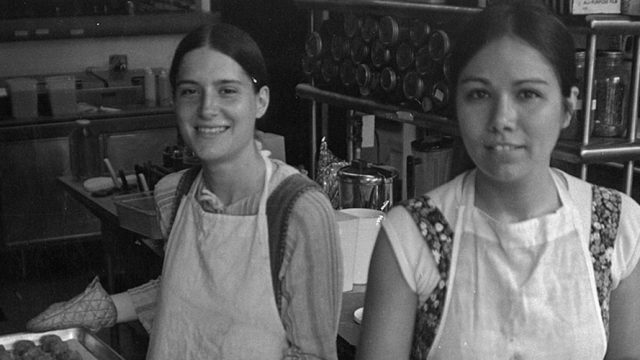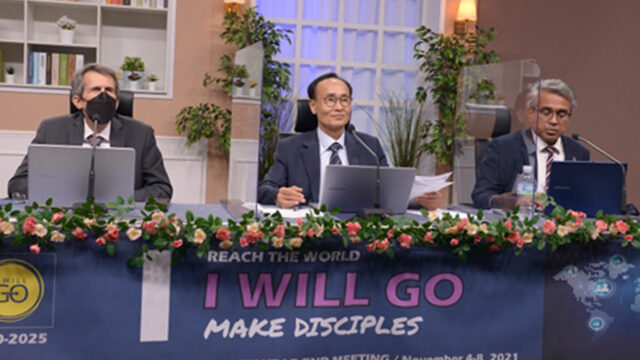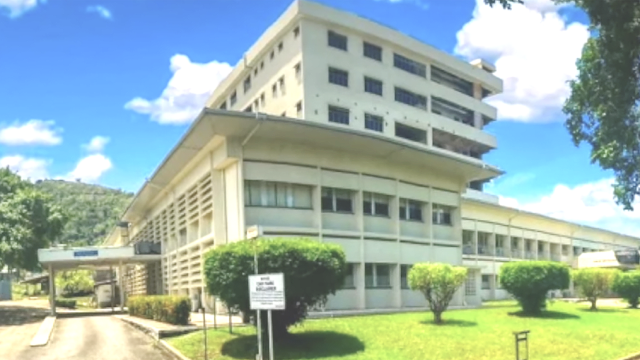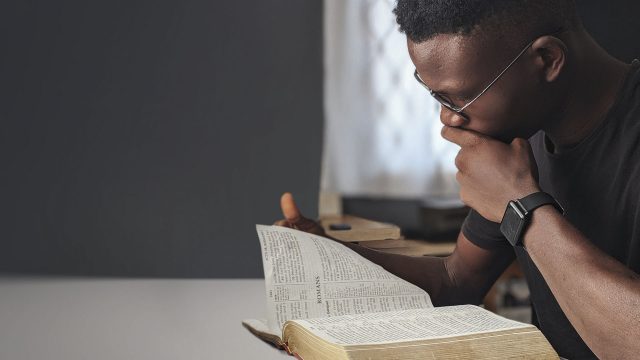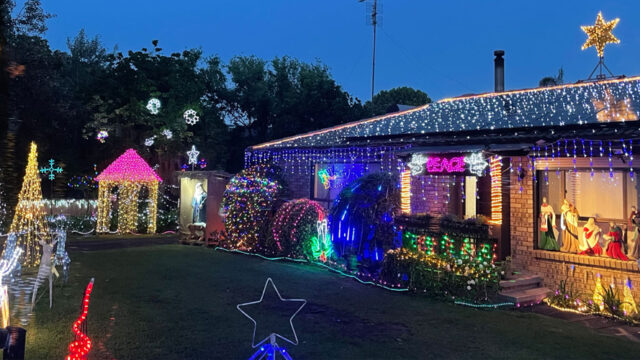Two stories about how some leaders reacted after the Christchurch shootings.

Following the news of the March 15, 2019, massacre of Muslim worshipers in Christchurch, New Zealand, North American Adventist-Muslim Relations leaders Gabriela Phillips and Gerald Babenezhad reached out to their Muslim neighbors and a local mosque. The following two stories share what happened during those visits.—Editors
This Church Knows
As I walked into Jamila’s home, I knew something was seriously wrong. Her usually cheerful self was hiding under puffy eyes and a somber mood. I did not see any of her colorful Kurdish outfits, just black — black robe, black shoes. She seemed to be having black memories from a past that, as a refugee, she wanted to keep buried.
Since the mosque mass shootings in New Zealand three days earlier, her locked-tight grief and fear suddenly now ran loose, untamed. When words failed her, a flood of tears came to her rescue. She has three sons and feared for all of them.
“Why? Why! Why?” Jamila pleaded, as if expecting me to explain why undiluted evil seemed to be winning. “Why? These people only wanted to pray.”
“One of the victims was the son of Jannah, a well-known calligrapher, and there are victims from Pakistan, Iraq, Syria.” And the list went on before she paused to gasp for breath. Quietly, her younger son came and tenderly hugged her.
Wishing to say something soothing, I finally spoke. “Sister, all over the world many people are hurting with you over what happened, even if they seem silent. As believers, we recognize that God gives all humans breath before they belong to any religion or nationality. But if we allow terrorists to poison our hearts and make us afraid, then they win. The purpose of terrorism is to instill terror. To poison our children to believe that we cannot live together.”
I continued, “As people of faith, we stand shoulder to shoulder together before the same Creator and Father of all. We ask God to replace fear with His love, so that every time one of us [is attacked], we come closer to each other. Then Shaytan [Satan] loses.”
Jamila agreed. “We cannot let the terrorists win.” Our friend Fatima was with us, so she and Jamila recited some comforting verses from the Qur’an.
Fatima also told Jamila that we had talked about this very thing earlier in the afternoon, at our monthly gathering of Adventists and Muslims. At this gathering, we typically eat, deepen friendships, and share stories of Jesus. But that day there was something extra. A group of teens from the South Bay Seventh-day Adventist Church in Chattanooga, Tennessee, United States, joined us on behalf of their congregation. Led by Nicole Parker, an elder’s wife, and Faith Anderson, the pastor’s wife, the teens brought a handwritten poster board with the words, “We Are One Community.” Many hearts, signatures, and hope-filled comments such as “Love will win” surrounded their message. During the gathering, Nicole said they would stand side by side with our local Muslims and protect them. She rejected violence in no uncertain terms.
I did not realize how important the teens’ presence at the gathering was until I was with Jamila.
Even though Jamila and her family had not attended our gathering this time, someone had already reported to her in great detail. But she had missed an important point. “Gaby,” Jamila said, “I know that your family and the Handals love us, but what about other American people? Can they see that we are here to enrich them too? Do they accept us?”
Fatima nodded as Jamila continued, “We perceive a very strong anti-foreign sentiment — this is my country, these are our jobs, these are our schools, we do not want you to use them. Can they see that we came to add, not to subtract?”
Both Fatima and I had pictures from our earlier gathering, so I pulled out my phone and said, “This church knows. Look at these young people. They are growing up with another mentality. They came to say that as people of faith they recognize your value and want to tell your children that fear will not win. These are also Americans.”
Jamila wiped her tears, called her younger son and nephew and told them in Arabic what I said. Showing them the picture and pointing to the poster board, she said with a soft smile, “These people want us here. They love us.”—Gabriela Phillips
“Do You Have a Word for Us?”
After hearing about the shootings in New Zealand, I knew I had to visit the nearby mosque in Northridge, California, United States, and extend condolences.
As I drove into the parking lot, an elder greeted me. I introduced myself as an Adventist wishing to offer my deepest sympathies after the tragedy. Surprised and touched, he said he would have the imam (congregation leader) meet me as soon as he arrived. I sat in the mosque and prayed for my Muslim brothers and sisters here and in New Zealand. In a short time, a rather young man, maybe late twenties, walked up and introduced himself as the imam. I expressed sincere condolences, and he was quite moved. “Brother,” he said, “would you be interested in sharing a message with us? Do you have a word for our congregation?” I gladly accepted.
Cutting short his sermon (and suffering from a sore throat anyway), the imam introduced me to the 200 men that packed the mosque. With a silent prayer that God would use me, I said, “Blessings to you from the Almighty. My name is Gerald Babanezhad, and as an Adventist, I am here to extend heartfelt condolences in this time of grief.”
Most Muslims do not know about Adventists, so I opened their sacred scriptures and recited in Arabic: “So if you are in doubt, about that which We have revealed to you, then ask those who have been reading the Scripture before you. The truth has certainly come to you from your Lord, so never be among the doubters” (Yunus 10:94).
I continued, “You see, there is a people who are reading the previous revelations and can clarify doubts.”
“They are not (all) the same; among the People of the Scripture is a community standing (in obedience), reciting the verses of Allah during periods of the night and prostrating (in prayer). They believe in Allah and the Last Day, and they enjoin what is right and forbid what is wrong and hasten to good deeds. And those are among the righteous. And whatever good they do — never will it be removed from them. And Allah is Knowing of the righteous” (Al Imran 3:113-115).
The congregation seemed to connect with those verses, for this is a Quranic admonition.
I am certain that it was strange for them to see an Adventist calling them to seek for the true “People of the Book” in their own scriptures. I added, “Such people are in your midst. I represent a community that adheres to the tenets of God’s revelation, to His law which has not changed.”
I shared further with them that we are followers of Isa Al Masih (Jesus the Messiah), using Islamic words and phrases they could identify with. I concluded with Jesus’ words: “By this all will know that you are My disciples, if you have love for one another” (John 13:35). There was a loud response as those gathered resonated with the text.
As I was returning to my seat, the director of the mosque came to me, saying, “I need your phone number. I need to contact you.” Before I left, many came to inquire more and to thank me. I was overwhelmed by the response.
One man said, “Brother, thank you for preaching for us from the Qur’an. Now we understand who are the People of the Book.”
Another Muslim asked, “Can you explain the meaning of Seventh-day Adventist? I don’t know who you people are.”
“Our name is a combination of two words,” I said, explaining in Quaranic language the belief in Creation and resting on the seventh day of the week. I also explained the Advent — we believe that Isa Al Masih will soon return. “We are getting ready for it, and we are sharing this news with everyone and anyone we possibly can,” I added. The man hugged me in thanks.
Several other Muslims requested my help in finding ways to approach collaborating with other Christian faith groups in their area. I can see clearly now that the Muslim community was and is receptive to what I had to share, and I have already connected the local Adventist pastor with them for follow-up.
We may not know the Qur’an or Arabic, but our presence can minister healing if we are willing to go and extend a hand of friendship.—Gerald Babanezhad
These stories were originally posted on the North American Division news site.


